Films with theme "Documentary films about racism", sorted by revenue

The Sixth Battalion (1998)
, 56minutesGenres Biography
Themes Films about racism, Films about religion, Documentary films about racism, Documentary films about law, Documentary films about war, Documentary films about historical events, Documentaire sur une personnalité, Documentary films about religion, Political films, Films about Jews and Judaism, Documentary films about World War II
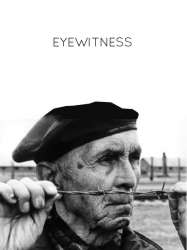
Eyewitness (1999)
Origin USA
Genres War, Documentary
Themes Films about racism, Films about religion, Documentary films about the visual arts, Documentary films about racism, Documentary films about law, Documentary films about war, Documentary films about historical events, Documentaire sur une personnalité, Documentary films about religion, Political films, Films about Jews and Judaism, Documentary films about World War II

Give us our skeletons! (1999)
, 49minutesDirected by Paul-Anders Simma
Genres Documentary
Themes Films about racism, Documentary films about racism, Documentary films about law, Documentary films about historical events, Documentaire sur une personnalité
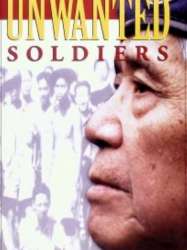
Unwanted Soldiers (1999)
Origin Canada
Genres Documentary
Themes Films about racism, Documentary films about racism, Documentary films about law, Documentary films about war, Documentary films about historical events, Documentaire sur une personnalité, Documentary films about health care, Political films, Documentary films about World War II

L'Afrique en morceaux (2000)
, 1h44Origin France
Genres Documentary
Themes Films set in Africa, Films about racism, Documentary films about racism, Documentary films about law, Documentary films about war, Documentary films about historical events, Documentaire sur une personnalité, Documentary films about politics, Political films
April, 1994. Genocide in Rwanda. 800,000 dead. A catastrophe that upset the balance in the entire region. The Great Lakes region of Africa ended the year with a bloodbath. This documentary shows the intrigues, the dramatic effects, the treasons, the vengeances that prevailed over those years and whose only goal was to maintain or increase each faction’s area of influence. In just ten years, the population saw all their hopes vanish: The dream of an Africa in control of its own destiny, alimentary self-sufficiency, the end of interethnic conflicts.
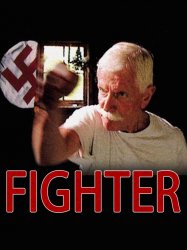
Fighter (2000)
Directed by Amir Bar-Lev
Genres Documentary
Themes Films about racism, Films about religion, Documentary films about racism, Documentary films about law, Documentary films about war, Documentary films about historical events, Documentaire sur une personnalité, Documentary films about religion, Political films, Films about Jews and Judaism, Documentary films about World War II

From Swastika to Jim Crow (2000)
, 1hGenres Documentary, Historical
Themes Films about racism, Films about religion, Documentary films about racism, Documentary films about law, Documentary films about historical events, Documentaire sur une personnalité, Documentary films about religion, Political films, Films about Jews and Judaism
 , 2h2
, 2h2Origin USA
Genres War, Documentary, Historical
Themes Films about children, Films about immigration, Films about racism, Films about religion, Documentary films about racism, Documentary films about law, Documentary films about war, Documentary films about historical events, Documentaire sur une personnalité, Documentary films about religion, Political films, Films about Jews and Judaism, Documentary films about World War II
Actors Judi Dench
Quelques mois avant la Seconde Guerre mondiale, une extraordinaire opération de sauvetage a arraché 10 000 enfants et adolescents juifs au régime nazi. Rapatriés en Grande-Bretagne pour être adoptés, ils durent tisser de nouveaux liens familiaux, supporter les bombardements pour certains, aller libérer leurs propres parents restés en Allemagne. Ils ont tous d'inoubliables histoires à raconter dans ce documentaire.
 , 1h40
, 1h40Directed by Rithy Panh
Origin Cambodge
Genres Documentary
Themes Films about racism, Documentary films about racism, Documentary films about law, Documentary films about war, Documentary films about historical events, Documentaire sur une personnalité
The film follows a Cambodian family as they work to dig a trench across Cambodia to lay the country's first optical fiber cable, depicting their hardships.

Shadows of Memory (2000)
, 43minutesGenres Documentary
Themes Films about racism, Films about religion, Documentary films about racism, Documentary films about law, Documentary films about war, Documentary films about historical events, Documentaire sur une personnalité, Documentary films about religion, Political films, Films about Jews and Judaism, Documentary films about World War II
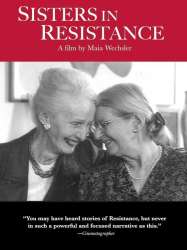
Sisters in Resistance (2000)
, 1hOrigin USA
Genres Biography, Documentary
Themes Films about racism, Films about religion, Documentary films about racism, Documentary films about law, Documentary films about war, Documentary films about historical events, Documentaire sur une personnalité, Documentary films about religion, Political films, Films about Jews and Judaism, Documentary films about World War II
Actors Kate Mulgrew
Ce film est l'histoire de quatre femmes exceptionnelles, résistantes, prisonnières, idéalistes qui à la fin de leurs adolescences risquèrent leurs vies pour combattre l'occupant nazi. Ni juives, ni communistes, elles rejoignirent la résistance alors qu'elles auraient pu tranquillement vivre en sécurité. Dans les deux ans qui suivirent, elles furent arrêtées par la Gestapo et déportées à Buchenwald. Aujourd'hui elles sont devenues des leaders sociaux ou intellectuels.
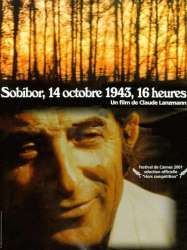 , 1h35
, 1h35Directed by Claude Lanzmann
Origin France
Genres Documentary
Themes Films about racism, Films about religion, Documentary films about racism, Documentary films about law, Documentary films about war, Documentary films about historical events, Documentaire sur une personnalité, Documentary films about religion, Political films, Films about Jews and Judaism, Documentary films about World War II
Actors Claude Lanzmann
Sobibor, 14 octobre 1943, 16 heures : lieu, heure, jour, mois et année de la seule révolte réussie d'un camp d'extermination nazie en Pologne. 365 prisonniers parvinrent à s'évader, mais seuls 47 d'entre eux survécurent aux atrocités de la guerre. Claude Lanzmann a rencontré Yehuda Lerner pendant le tournage de Shoah, à Jérusalem en 1979. Dans ce documentaire, ce dernier s'est confié au réalisateur.

Too Colourful for the League (2001)
, 52minutesOrigin Canada
Genres Documentary
Themes Films about racism, Sports films, Documentary films about sports, Ice hockey films, Documentary films about racism, Documentary films about law, Documentaire sur une personnalité
 , 55minutes
, 55minutesDirected by Anne Aghion
Themes Films set in Africa, Films about racism, Documentary films about racism, Documentary films about law, Documentary films about war, Documentary films about historical events, Documentaire sur une personnalité, Documentary films about politics, Political films
The first film in this award-winning trilogy ventures into the rural heart of the African nation of Rwanda. Follow the first steps in one of the world’s boldest experiments in reconciliation: the Gacaca (Ga-CHA-cha) Tribunals. These are a new form of citizen-based justice aimed at unifying this country of 8 million people after the 1994 genocide which claimed over 800,000 lives in 100 days. While world attention is focused on the unfolding procedures, award-winning documentarian Anne Aghion bypasses the usual interviews with politicians and international aid workers, skips the statistics, and goes directly to the emotional core of the story, talking one-on-one with survivors and accused killers alike. In this powerful, compassionate and insightful film, with almost no narration, and using only original footage, she captures first-hand how ordinary people struggle to find a future after cataclysm.
 Connection
Connection